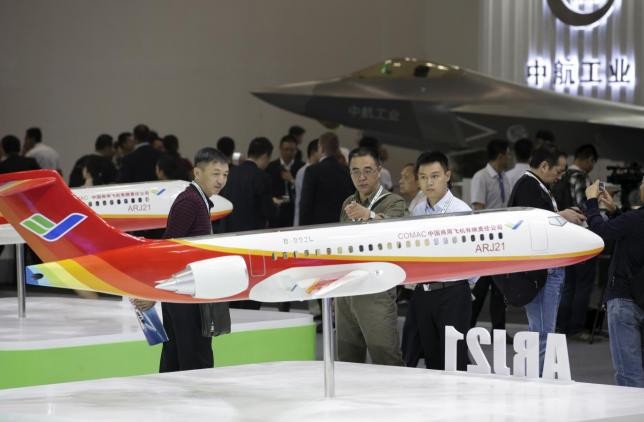A Chinese aircraft manufacturer has come up with an idea on how to build safer airplanes using big data and cloud technology, amid global concerns on how to reduce safety risks caused by unusual human behavior and how to recover and analyze data from air crashes, the Xinhua News Agency reported.
"The time for revolution in aviation safety has come," Wei Ye, executive director and president of the Commercial Aircraft Corporation of China (COMAC) America Corporation told Xinhua on Friday, March 25.
The announcement came as the Bureau of Enquiry and Analysis for Civil Aviation Safety of France recently confirmed that a co-pilot of the German budget airline Germanwings had been suffering from depression and deliberately caused the plane to crash a year ago.
The same is true in the case of Airbus 320, which crashed in southern France on March 24, 2015 while en route from Barcelona to Duesseldorf, and resulted in the death of 150 people on board, the report said.
Using a big data-based computer, COMAC America Corporation is studying the concept of "unmanned flight with human supervision" which operates without influence from outside in a closed environment, thereby minimizing the risks caused by human factors.
"Without the influence of pilots' emotions and mishandling, a computer-piloted plane is safer than a manned one," Ye said.
According to COMAC, planes of the future will be piloted by computers equipped with a hard-drive with big data that contains flight routes, weather information, and emergency processing programs, while the future "pilot" will depend on flight data of 200 pilots accumulated in 20 years. While the hard drive is inserted into the cockpit, human pilots can monitor the flight in a separate compartment.
The company said that the concept, which could become the future trend in civil aviation, might be tested on unmanned cargo flights first.
Meanwhile, research and development is being conducted by COMAC to improve an airline's ability to keep track of a flying plane since it is often difficult to determine the cause of a plane crash, locate the crash site and conduct a timely rescue if the plane's black box is missing.
The report cited the case of flight MH370, in which recently two pieces of debris, consistent with parts on a Malaysia Airlines Boeing 777, were reportedly found in Mozambique. However, the accident that happened two years ago could still be one of the most mystifying crashes in modern civil aviation history as the black box is still missing.
With the European Union announcement in Dec. 2015 on new requirements for closer tracking of an aircraft in the sky and improved traceability of the black box aboard, COMAC is developing "Harbinger," a comprehensive emergency recording and tracking system that it has started two years ago to complement the black box system.
The "Harbinger" would take away the flight data in the black box and record the last few minutes of the crash before it is ejected from the tail of a plane when it is about to crash. Shortly after the ejection, it will transmit data to a satellite and keep a backup of the data.
The company said that the "Harbinger" is equipped with a soft-landing system to protect itself on landing, whether on the sea or land, and send signals for people to locate it.
The report said that the patent for the project has been applied in both the U.S. and several other countries, while the company has manufactured parts for testing.
The company is also planning to develop new functions in rapid wireless data transmission by partnering with FTS Technologies Inc., a California-based Internet connectivity solution provider.
To enhance an aircraft's "self-awareness" of its life, experts at the company are reportedly studying "smart life health management" of aircraft, which will enable them to calculate the service life of the large-scale complex system of an airplane through a special algorithm to be able to obtain safety data of the system before take-off.
COMAC is also developing an online aviation consulting platform to connect global engineering resources, which it plans to launch in the second half of this year.
"This platform is expected to transform the traditional model of research, development and technical services," Ye said.



























